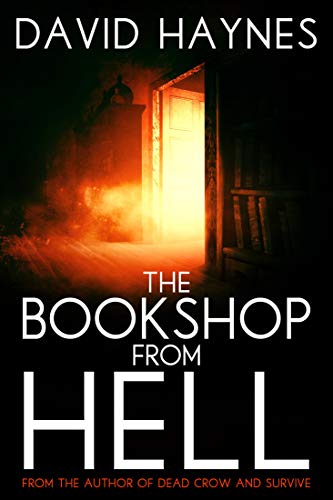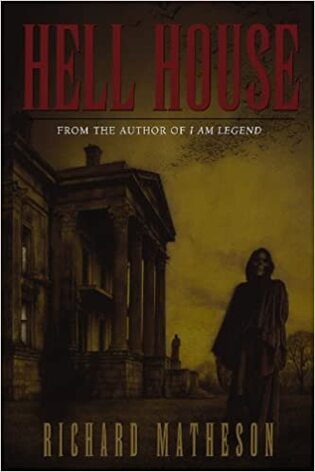 Since I published my first book in 1993, I've been confused about the return policy our industry seems to accept. Now, several years down the road, I'm still having problems wrapping my brain around it. It is what it is, but I think it can better serve both Authors and Booksellers if we agreed to share the risk of returns. According to the IngramSpark.com website... "Historically, publishers grant booksellers the right to return unwanted and/or overstocked copies of books. These books are considered “returnable.” As books are returned, booksellers expect to be reimbursed for the cost (i.e. their purchase price) of any books they return. "When you set up a new title in IngramSpark, you'll be required to select a returns option and will have 3 to choose from:
Why? Don't booksellers understand that being an author is risky enough? Don't they understand that authors are struggling to be successful? Since booksellers need books to stay open, one would think that they would bend over backward to help authors, not the opposite. Okay, enough whining. The fact of the matter is, booksellers and authors have a symbiotic relationship. Booksellers will be forced to close their doors without the books we write, and authors need a place for readers to discover our work. Any intelligent person would be confused as to why an animal continually tries to rip off it's own head. It makes no sense. Sure, I understand that booksellers take a risk in giving up their shelf's real estate to an unknown, unproven author's book. Books are not widgets. They are very specific pieces of subjective art, not only in the creation, but in the admiration. Marketing strategies change with each new title, and there is zero predictability about whether or not a book will do well. I understand the risk. As a veteran Indie Bookshop General Manager, I promise you, I get it. But booksellers aren't the only ones taking a risk. The author is also taking a huge risk. Often times, I think that risk is either ignored or set aside, and I think it's important to remind... Books are valuable. Really great stories, memoirs, histories, explorations of our planet, advice, and instruction are not simply created out of a few pieces of paper, some cardstock, and ink. It takes months, sometimes years to write a book... longer if there are illustrations, photographs, charts, graphs, or research citations. Books are created out of an individual's heart, imagination, and resourcefulness. Books are art, not things that appear out of a robotic assembly line, or haphazardly produced on sweatshop floors by abused, underpaid workers. Books are exclusive in creation. No two are exactly alike. In fact, they can't be, by law - that would be plagiarism. Authors risk everything about who they are to write a book. They risk their after "day job" free time, their self-esteem, their sleep, and sometimes, the marginalization of their families, as they write. But not only that... Independent Authors, especially, risk a lot of money in the process of writing a book. Editors, illustrators, cover designers, website designers, marketing experts, distribution fees, inventory, travel expenses (for festivals, speaking engagements, or bookshop appearances)... it really adds up. There is not only a big emotional and intellectual risk, but a huge financial risk when one makes a decision to write a book. If there wasn't, Traditional publishers wouldn't require "recoupment" before distributing royalties to authors. On top of all that... booksellers expect full recovery for their risk, which means the author's risk is greater, still. You see, if a bookseller can't sell a book, they are permitted to return it to the distributor for a full refund PLUS shipping. I believe the return time is 180 days... that's SIX FULL MONTHS! Who eats that loss? The bookseller only loses a little bit of shelf space and perhaps some new "local author" stickers (if they're really nice). So, who's left to eat the loss? Not the distributor (in this case, IngramSpark). They've already been paid by the author to print the book and send it to the bookseller, so they don't lose anything. So that leaves, you guessed it... the author. They are required to absorb all the costs of that loss. What's worse is that if the books are returned, the author must take the loss of the cost of the books, and the shipping from the bookseller to the distributor. Add insult to injury, these books are now considered "used", not "new". Oh, the author will get them back (but the distributor will charge the author again for shipping). However, because they are now considered "used" inventory, they are going to be especially difficult to sell, even on consignment. There is another option... the author can request that the returned books be destroyed, then the author is spared the cost of the shipping... but they've lost those books and the cost to print them. Not paying shipping is little comfort when you consider everything an author has to go through to release a book out into the wild world. Authors live under the constant threat of a double-edged sword. Between the creative energy to write, plus the financial risk to publish and distribute, it's a wonder any of us actually write and publish more than one book. I think it's time we all embrace a new promise of integrity... some modicum of trust between the bookseller and the author. Why do we have to be in constant competition with one another? Why can't we rejoice in the fact that we are blessed to be working in an industry that feeds our souls and also improves our society? For without the written word in a readily accessible format, the power of choice over our own destiny will be relegated to the few left on Earth who can read and print books. Do we really want to return to a history where only the rich elite can read and write... and the remaining population must simply "go along" because we are deprived of books? I have an idea for a solution. I envision a compromise between Booksellers, Authors, and Distributors that acknowledges that we're all in this industry to lift each other up, not compete against one another. We're in this industry to enhance the world's library, and strengthen world literacy toward creating a more advanced humanity, with diversity and empathy for everyone involved... Right? So, here's my thought... Why can't we establish a system of returns that is mutually beneficial? When an author independently publishes, they can choose to allow a limited number of returned books within a more reasonable time frame, say three months (doesn't the rest of the world work on a quarterly basis?). The number of returnable books would be at the author's discretion, or perhaps within a negotiation between booksellers and authors, but never open-ended. If a bookseller wants to order more than the threshold return maximum, they can do that... but those extra copies won't be returnable. If a bookseller determines that the book isn't selling to their satisfaction, they can then instigate the return, according to the limits negotiated in the distribution contract, with the forward shipping the responsibility of the distributor, the return shipping the responsibility of the bookseller, and the shipping from the distributor to the author of returned copies at the author's responsibility. This keeps the bookseller's risk manageable and doesn't overrun their shelves with unsold inventory while also alerting them to an author who may not be a good fit for their customer base. This "trial run" opportunity offers the bookseller a chance to gauge the buyer's inclination to purchase future books by a particular author, which may impact the bookseller's future marketing plans with far less liability. In fact, this "limited quantity, early preview period" may give booksellers a greater advantage to arrange reading events with authors who are in higher demand, thus improving the shop's marketing momentum. Once an author is established as "worthy" (which means the bookseller actually sells at least the maximum return threshold), the next logical expectation would be that the author is one a bookseller can rely on to have a reader base, and therefore, future books written by the author would not be eligible for returns because the author would be considered "sale-able." This arrangement also respectfully manages the author's loss. As long as an author has a clear understanding as to the number of books that may be returned, they can better plan for a failed distribution of a particular title. Authors can either plan to have that "unsold/used" inventory returned to them so that they can sell those copies at fairs and festivals at a discounted rate, or perhaps use those books as part of a giveaway program to augment their marketing goals, donate them to Little Free Libraries, schools or public libraries... or they can choose to take the complete loss on that small number of books, and have the copies destroyed. Regardless, in this proposal, everyone is given the opportunity to manage their own risk, and their own loss, within a reasonable period of time so that they can plan for future contingencies. I believe this idea is a viable solution that supports the entire industry without the Authors suffering the brunt of a failed title distribution endeavor. It's thoughts like these that make me wish I had more of a "political fire" in my belly; but I just don't. I'm a passionate Indie Author Advocate, and I would love to see a change in this area of our business... but I don't have the skills, patience, legal understanding, financial war chest, nor influence to realize the change I can imagine. I wish I did. But, that's simply not one of my strengths. So, for the time being, I will have to live with what is, along with all the other Indie Authors. If anyone would like to build on this idea and implement a program, organize a lobby group, draft a petition, schedule a town hall meeting, develop a Kickstarter campaign, etc... I'm ready to be a participant and strong supporter - send me an email, and I'll do what I can to assist. I'm just not qualified to spearhead and create continuous momentum for such an undertaking. Until someone out there becomes a champion for this cause, I'll be waiting in the wings, figurative sword at the ready, pen in hand.
1 Comment
 If you've read any of my other book reviews, you'll know that I'm a reader who gravitates toward books about books, libraries, bookshops, and authors, regardless of genre. This book hits all the marks in ways I never anticipated. I discovered this title while browsing for audiobooks on ChirpBooks.com, and after reading the synopsis, and listening to the short snippet, I was drawn in to the story. This is a fantastic tale of a small town that gains a new bookshop. The proprietor is a strange, enigmatic man, but super generous. Everyone who visits gets a free book on their first trip into the shop. The books are compelling and nearly impossible to put down. Everyone in the town is drawn to read their story, even if they're not generally readers. Having a book selected just for you, will do that, I suppose. Reading a great story is a tremendous gift, after all. The town changes because of the bookshop. People become differently engaged with their neighbors, and mysteriously, the energy of this once gentle town, turns ugly very quickly. Books are powerful weapons, especially when wielded by the unsuspecting. The pace of the story is super quick, and it's difficult, because of that, to find a place to pause reading. My favorite parts of this book? The high school English teacher, the Librarian, the Student, and an ending left hanging and festering in your mind with a strong, unyielding desire to want more than you should. This book was creepy good, and even though there was more "language" than I'm usually comfortable with, the story insisted I overlook that part and keep going. I'm glad I did. I'll be reading more from this author in the future. My only disappointment with this book (aside from the creative language) was the fact that it's not available in paperback (only audio and ebook). It's a point I hope the author changes, as this is one I'd enjoy putting on my shelves, signed by the author, someday.  A story of a haunted house, told with a twist... okay, several twists. This is not just a story about ghosts roaming the halls, things going bump in the night, and lights flickering when they shouldn't... this story aims to justify science and the paranormal. The house itself has a story goal, and works well to disengage the characters that visit from the reality they thought they understood. It's an interesting notion, to have a scientist, in this case, a physicist, attempt to explain the unexplainable. He brings with him, his wife, who serves as an "unbiased witness", and two mediums, one physical and one mental, to help support the notion that the paranormal has energy that can be explained, and therefore, eliminated. Each has their own reason for coming to the house, and each has a different emotional impact on the reader. I enjoyed the idea that one of the characters endured time in this house in the past, and another is religious in their beliefs. Those oppositions made the story far more intriguing. They were all being paid to be there, but it seemed they all had a far more important stake than just the cash. Throughout the book, I constantly asked why they wouldn't just leave, but at each turn, something far stronger than money drew them back, regardless of their longstanding beliefs, and in spite of the house's reputation. Given the puzzle of trying to figure it all out, I probably would have stayed, too. I thought the author created a foreboding sense of urgency in the story goals of each character. The combination of the physical, psychic, and emotional responses from the characters, along with the mysterious origins and later reclusiveness and abandonment of the house, certainly held my attention. The ending seemed too tightly wrapped up... but I didn't have nightmares, so I'm okay with that. It was fun to be startled intellectually as well as emotionally. The gore factor was relatively low, considering this is a horror novel, so that made it easier for me to read and enjoy. Stephen King calls this book "The scariest haunted house novel ever written." I don't think I agree with that. I thought Amnityville Horror was a far scarier haunted house... but if you like scary stuff, this is certainly worth the time spent, and I had more than a few chills crawl up my spine when reading.  Source: Facebook, photographer unknown Source: Facebook, photographer unknown I just love this photo. It's a $0.99 solution for what could be a potential $9,000 problem. How do you keep your dog from squeezing out of the gate, and running into traffic, thus requiring a tragic visit to the veterinarian? If you search any number of online retail and training sources for pets, you'll discover a vast array of solutions, at varying prices, all requiring copious commitments of time, attention, and energy. But, a single trip to the Dollar Store might be able to solve the problem with ease, and provide no additional stress for you or the dog until you can take some time to step back and figure out something better. Simple, right? After enjoying a good chuckle at the photo, it started me thinking... how often do I, as a writer, encounter the same predicament? How often have I been faced with a plot problem or a character conundrum, and spent hours on a quest to find the "best" solution? The right word... the most engaging emotion, the most transformative description, the funniest punchline, all while my story languishes in the relative danger of remaining unfinished? I spend hours staring at the screen, doodling with my notebook, staring at the clouds, trying to find just the right piece to fit my literary puzzle, when really, the simplest solution might just be the most effective one, for now. I sometimes overlook the wooden spoon because I'm fooled by the notion that I should be spending my time looking for an electronic vibrating harness that won't hurt the dog, but rather, alert him to change his path and make a better choice about his longing to escape. I'm fooled into thinking that the flashy solution is better based on no real information, other than it's flashy. I often have this problem with words. It's true. Sometimes, the simplest solutions are the best in books. Sometimes, a single word, spoken softly but with conviction will be far more effective against the advancing evil monster, than a rhyming spell of seven stanzas, spoken in Latin, punched up at the end with a flamboyant toss of a handful of magic dust... at least until you can get a coven of magicians together to chant along with you.
It's important to solve the most pressing issue... how do I keep my story safe, and yet, still give it the freedom it needs to carry readers through the adventure? The first order of business is to stop my literary puppy from escaping the yard and hurting himself. After I've accomplished that, then I can worry about painting the spoon with bright colors, adding more padding to the harness, wiring in sensors to sound tiny alarms that only work on dog-frequency-hearing, and install the GPS that connects directly to my smart phone that will alert me to his up-to-the-minute travel intentions. Sometimes, just writing the words, making them effective, and not worrying about the "marketability" of the story until after the whole thing is written, is the best course. For me, that's what participating in NaNoWriMo (National Novel Writing Month) means. Show up simply. Sit in the seat, put your fingers on the keyboard and your story on the page. Use the wooden spoon now, and worry about crafting the flashy stuff that will go into a marketing blurb later. I need to remind myself... first, focus on getting the story out... then, work on keeping the story contained yet free. It's a problem that I often overthink when in the throes of creative rapture. Letting my imagination run away without keeping it safe within the fenced confines of the story's yard can be disastrously distracting. Once the story is "safe", I can then take some time to work on refinements with a bit more comfort. Writing is so much more fun when you do it from a place of calm enjoyment, rather than from a place of fearful panic for your story's security. This is how I want to spend my time playing with my literary puppy. When he's whole, safe, and within easy reach, then I can work on teaching him new tricks. I can show him the wonders of pacing through the afternoon, sniffing out a misplaced bone, digging to discover what might be hidden under a bush, the exhilaration of chasing a wayward squirrel, and perhaps taking a bit of pride in barking at another dog in the street, and saving them from certain disaster. So, for NaNoWriMo, I give myself permission to write 50,000 words simply, safely, and without the worry of flash and pizzazz. It's okay that I don't know all of that other stuff in November. I just need to know how to get the story out and safe. I can work on teaching my literary puppy new tricks in December or January. |
WelcomeYou'll find some interesting stuff here... some Op Eds, some Information, Book Reviews, and More. Poke around the categories and see what ruffles your feathers... in a good way! Archives
July 2024
Categories
All
|
 RSS Feed
RSS Feed